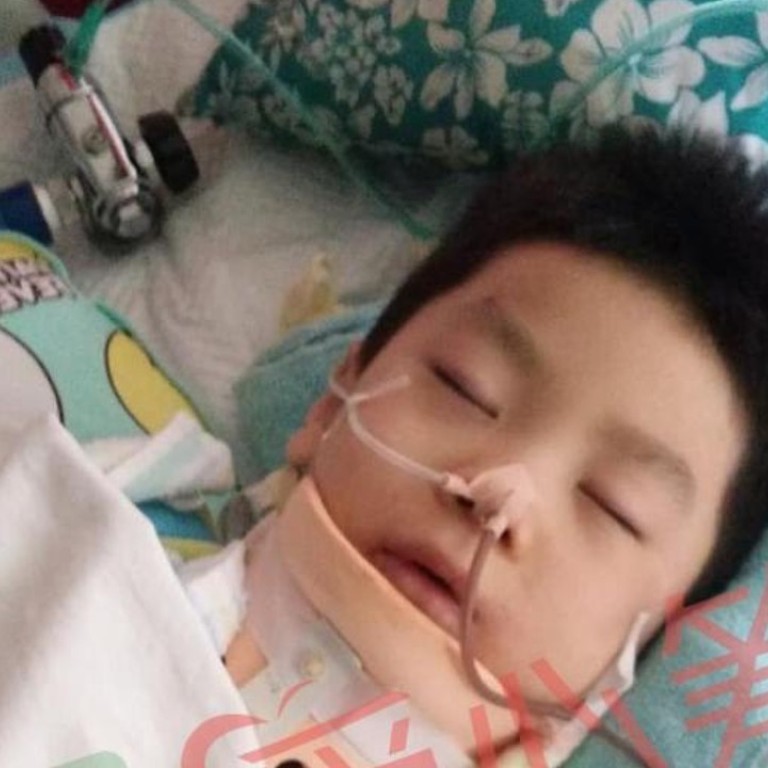
Chinese couple crowdfund for grandson’s hospital bills, and put their house up for sale, after he falls six storeys from window
Lu Pengyinuo, six, has been in hospital for a year, and his grandparents have used all their savings to pay his bills. Desperate to keep his treatment going, they launched a crowdfunding appeal, as many Chinese families do
An accident in July last year upended the lives of Yang Cuiping and Lu Bingxing. Their grandson Lu Pengyinuo, now six years old, fell from their sixth-floor flat in Shanxi, northern China, late one night while they were sleeping.
Yang said: “He woke up at 5am and played with a mobile phone near the window. He dropped the mobile [onto the street]. He looked out of the window to see where it dropped, lost his balance and fell to the ground.”
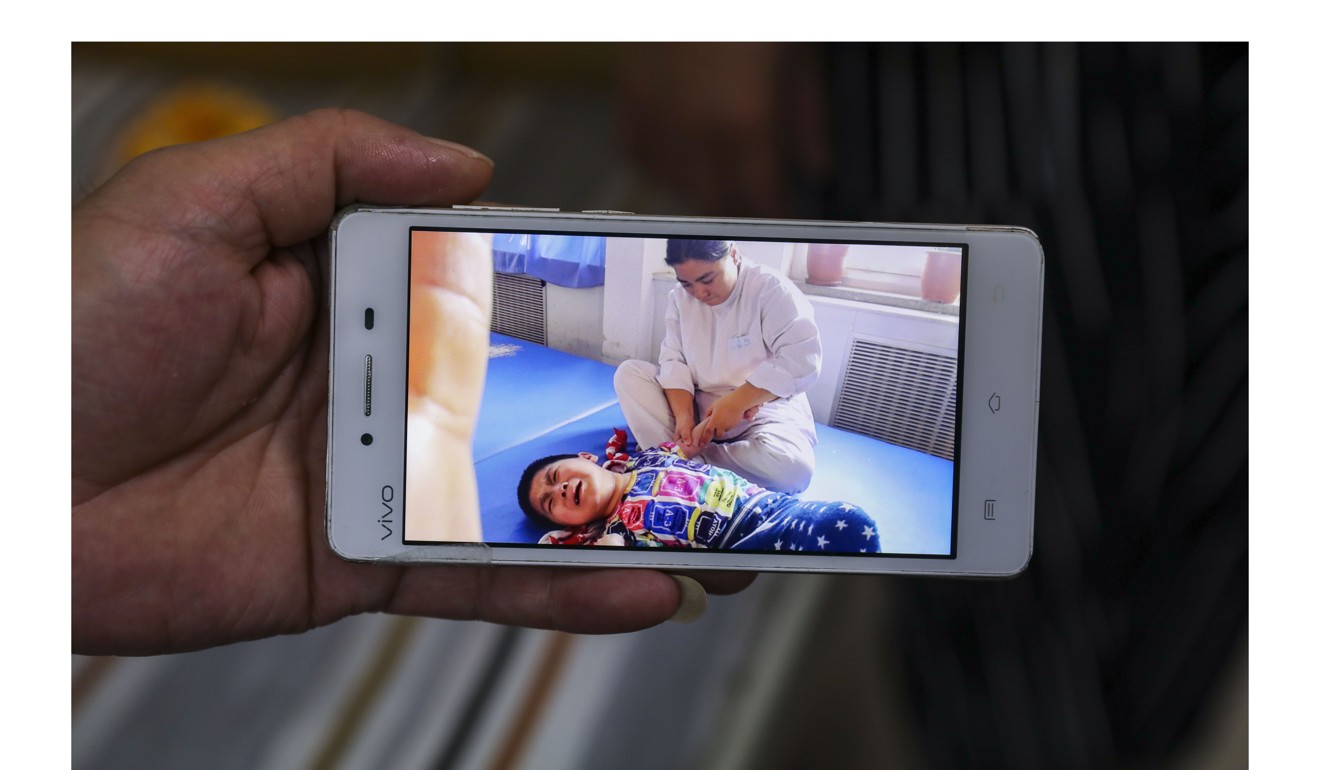
In a coma for 24 days at the Shanxi Provincial Children’s Hospital, he was diagnosed with hydrocephalus (swelling of the brain), fluid in his lungs, and a broken collarbone.
Yang said: “He had been running a high fever. After two months in the Shanxi hospital, their doctor told us we should take him to a better hospital in Beijing or Shanghai for further treatment.”
The 200,000-yuan (US$29,000) bill at the Shanxi hospital wiped out the couple’s savings. They had Pengyinuo admitted to Beijing’s Hospital of Hui Minority last November. A month’s stay at the hospital cost 20,000 yuan.
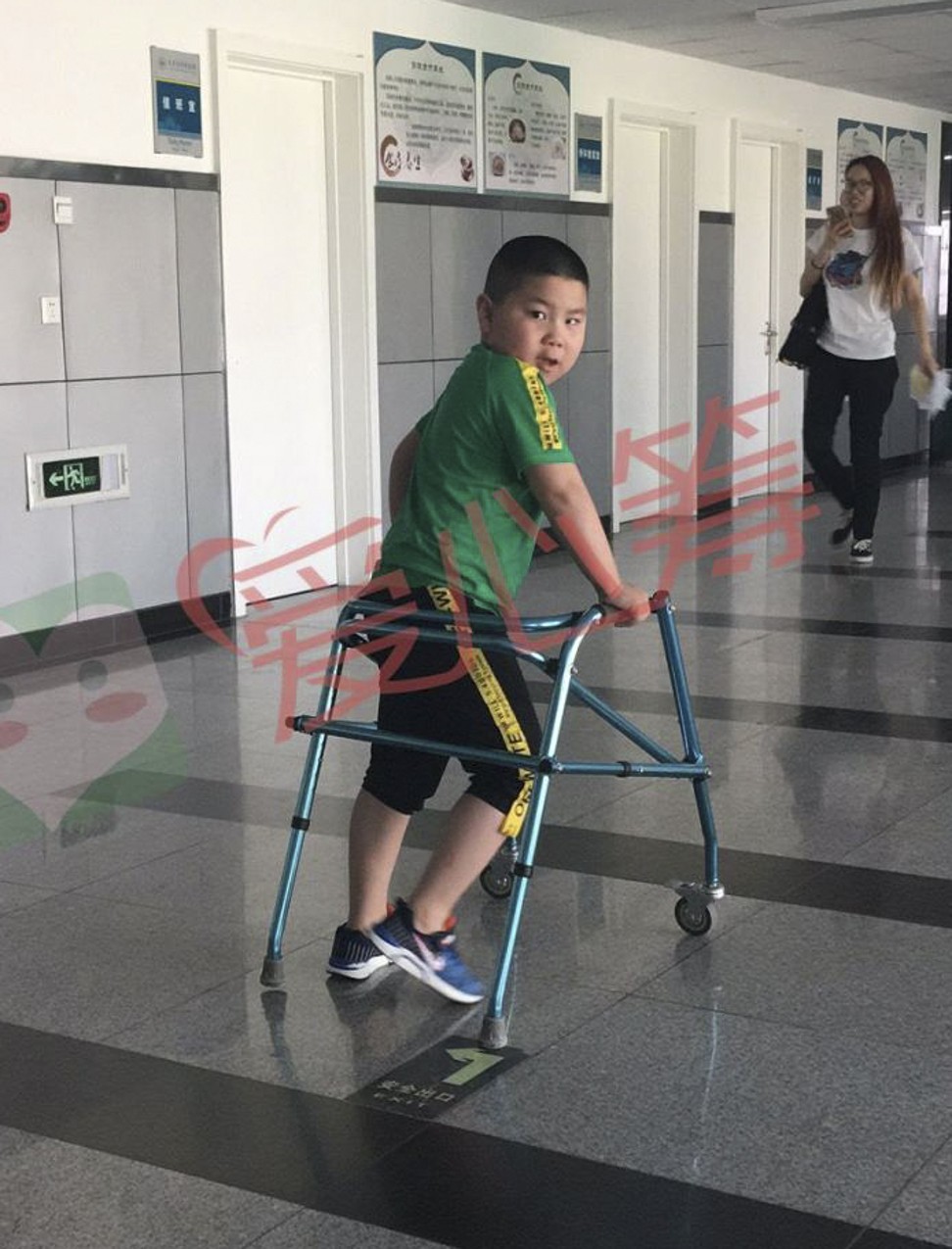
“We have put up the house in Shanxi for sale since his fall, but it hasn’t sold yet. Luckily, another of our two Shanxi houses was demolished to make way for development. We got 280,000 yuan as compensation and we brought that money to Beijing,” Yang said.
A monthly stay at the Beijing Hospital of Hui Minority costs 20,000 yuan, excluding living expenses for my husband and I. My credit cards are over their limit. We are helpless, there’s no one we can turn to
“His mother left when he was nearly three months old. His dad, my son, has depression and is housebound. Our whole family of five, including my 18-year-old daughter who just graduated from high school, rely on the 3,000 yuan pension of my husband, a former metalworker.”
After securing loans from relatives, they launched a fundraising drive online to help pay for their grandson’s medical costs since the accident.
The doctors crowdsourcing public’s help to solve medical problems
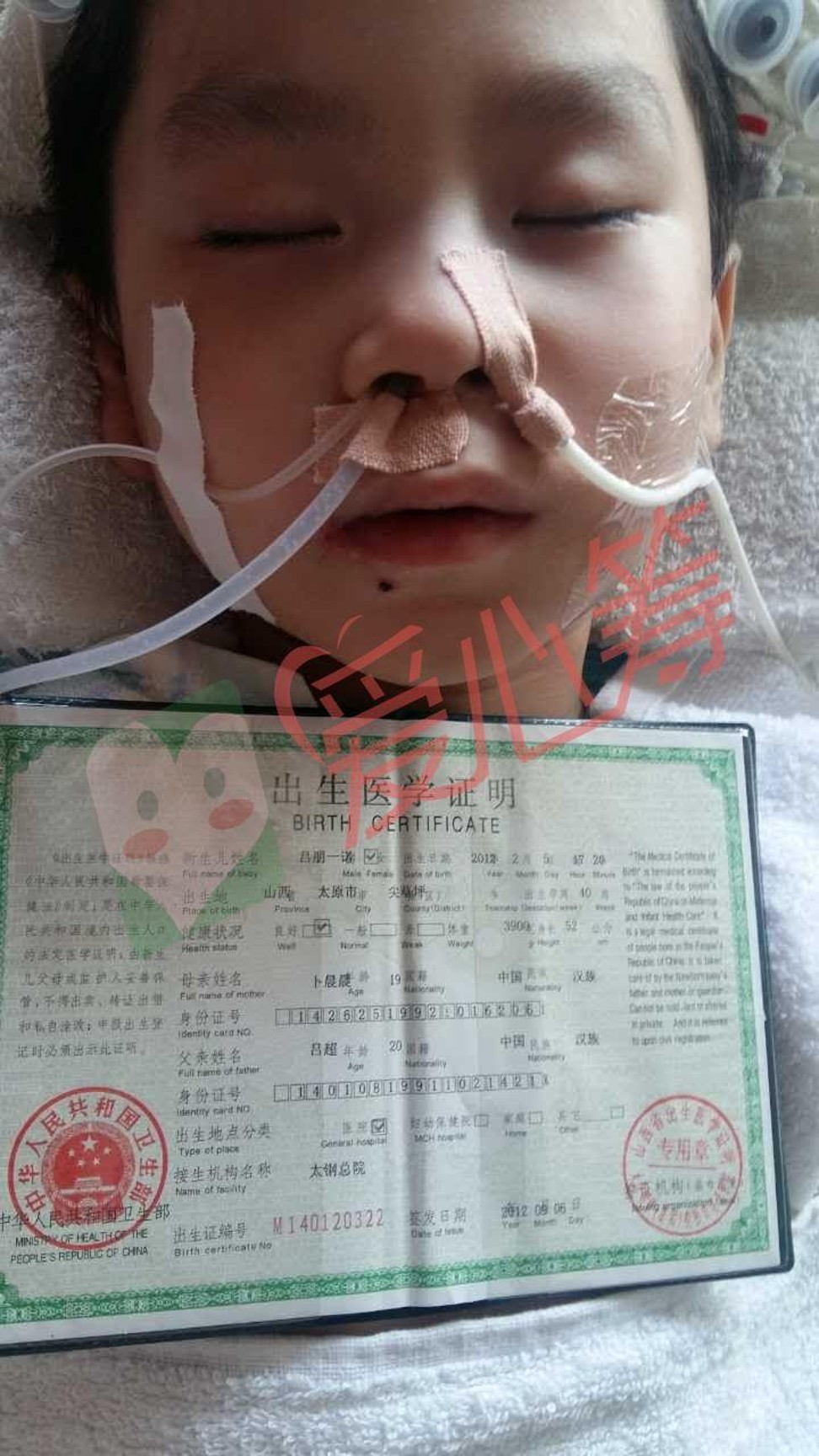
“He couldn’t eat, drink, walk or sit. After physiotherapy, he still couldn’t walk without us supporting him. He also needs speech and swallowing therapy. The doctor also couldn’t say when he will recover. It will be a long road to recovery. His kindergarten studies stopped after the accident.”
The family’s plight is typical of many families in China who have resorted to crowdfunding sites to help pay exorbitant medical costs.
Chinese crowdfunding site shuts down driver who asked for burial money
According to a 2016 report by WangDaiZhiJia, a rating agency for online financing forums, there were 18 charitable online crowdfunding sites in China as of October 2016. The popular ones that highlight patients with severe illnesses include shuidichou (whose name translates as water drop fundraising), which has raised money for 550,000 patients since its establishment in 2016, and qingsongchou (whose name translates as easy fundraising), which has raised over 110 million yuan for patients since its establishment in 2014.
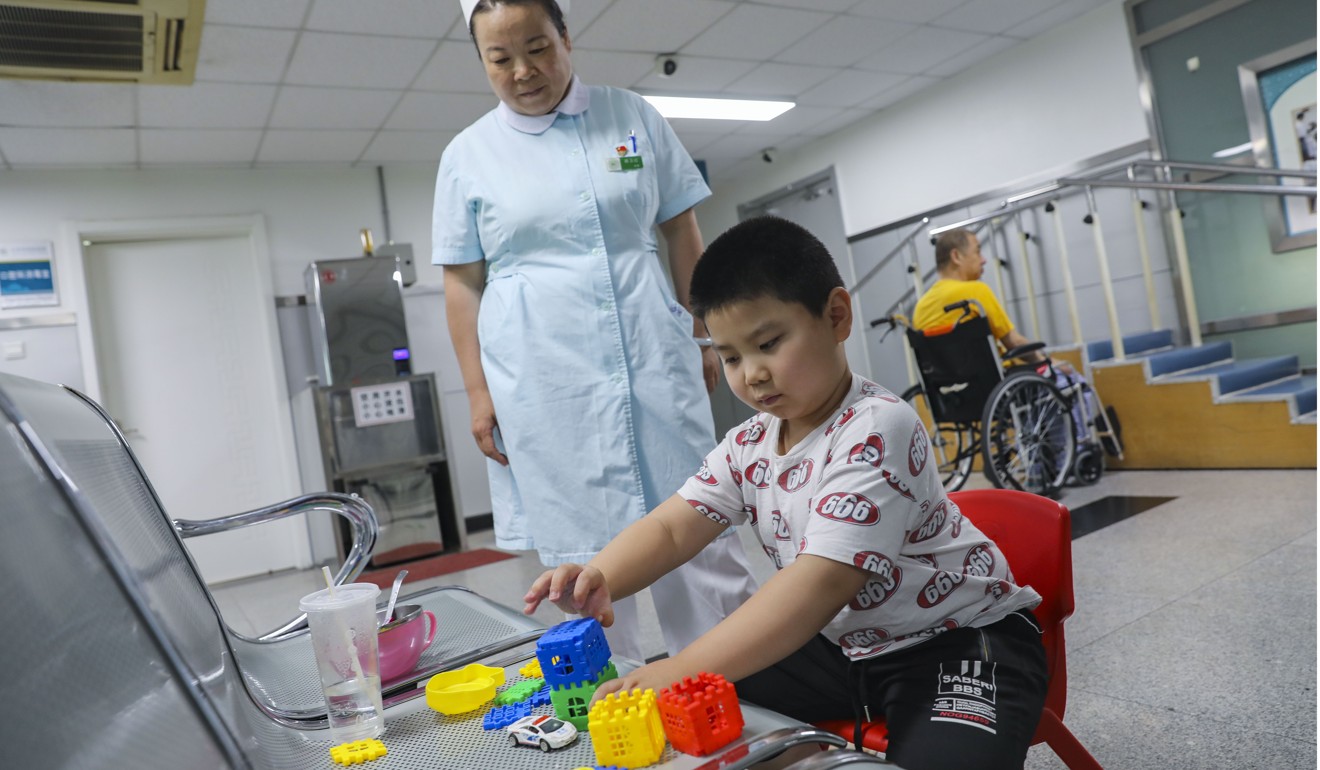
China’s hukou – or household registration system – governs where residents can access public services. While patients are eligible for partial refunds of hospital bills through their hukou, those from remote provinces like the Lus who seek better medical treatment in big cities away from their hometown must pay medical bills out of their own pockets.
Yang explained their dilemma.
“My grandson’s hukou is in Shanxi. We can get around 30 per cent refunds with that hukou for medical bills we incurred in Shanxi. But we are now in Beijing. A monthly stay at the Beijing Hospital of Hui Minority costs 20,000 yuan, excluding living expenses for my husband and I. My credit cards are over their limit. We are helpless, there’s no one we can turn to,” she said.
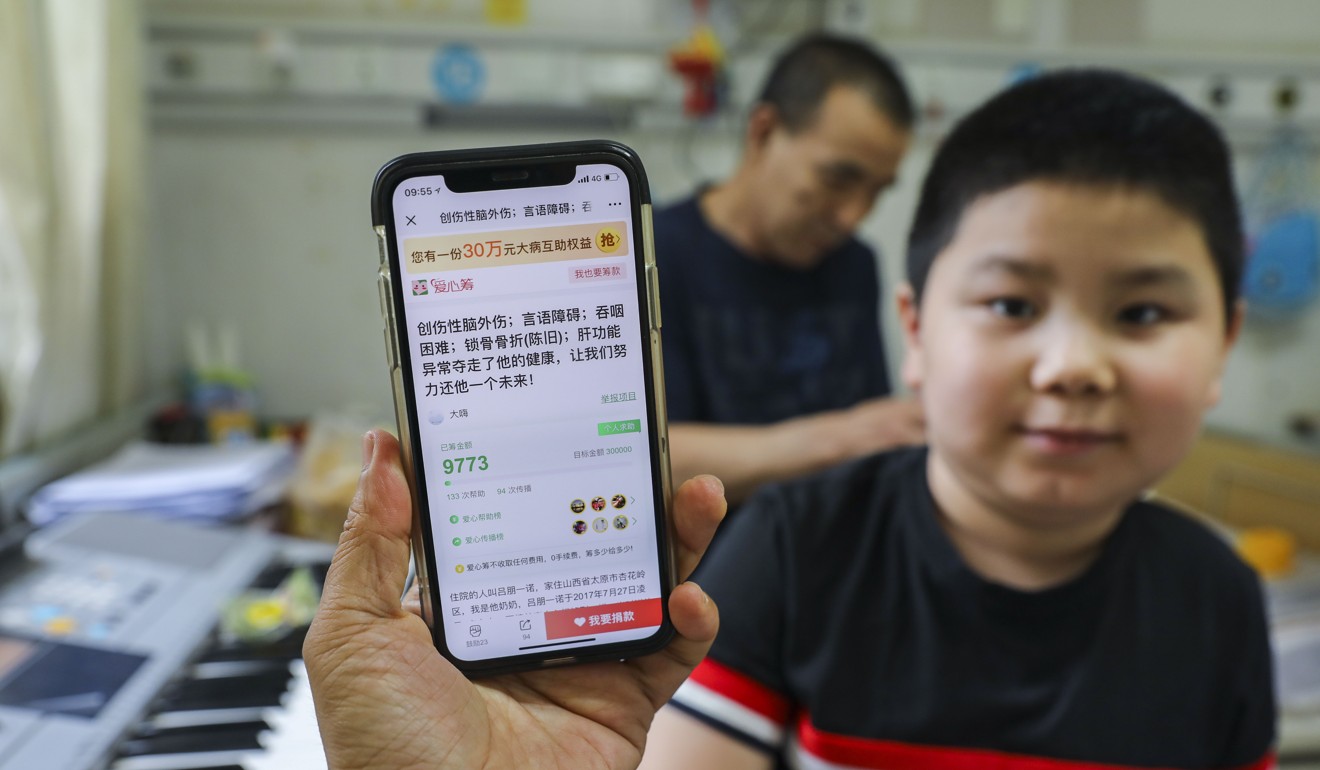
With the growing popularity of crowdfunding sites for patients, online charitable forums link up the generous with the needy; however, they have attracted criticism amid reports that dubious fundraisers have made use of such channels to bilk the compassionate of their money by exaggerating illnesses, using false identities and keeping their real financial situation hidden from the public.
In 2016, a woman from Anxi County in Fujian province, southeast China, launched a fundraising drive on qingsongchou for her father, who was hurt in a traffic accident. She set a fundraising target of 80,000 yuan and eventually raised around 20,000 yuan. She later posted notes of thanks online and ended the fundraising drive before its expiry date.
Crowdfunding to help needy cancer patients ineligible for subsidies
She was later found by web users to have posted online pictures of herself and her friends travelling in Singapore soon after she ended the fund-raising drive, which led to recriminations and complaints to qingsongchou. She later told the media she would return the donations.
Crowdfunding sites have since strengthened their scrutiny of patients’ identities and medical records, and frozen donations upon receiving complaints.
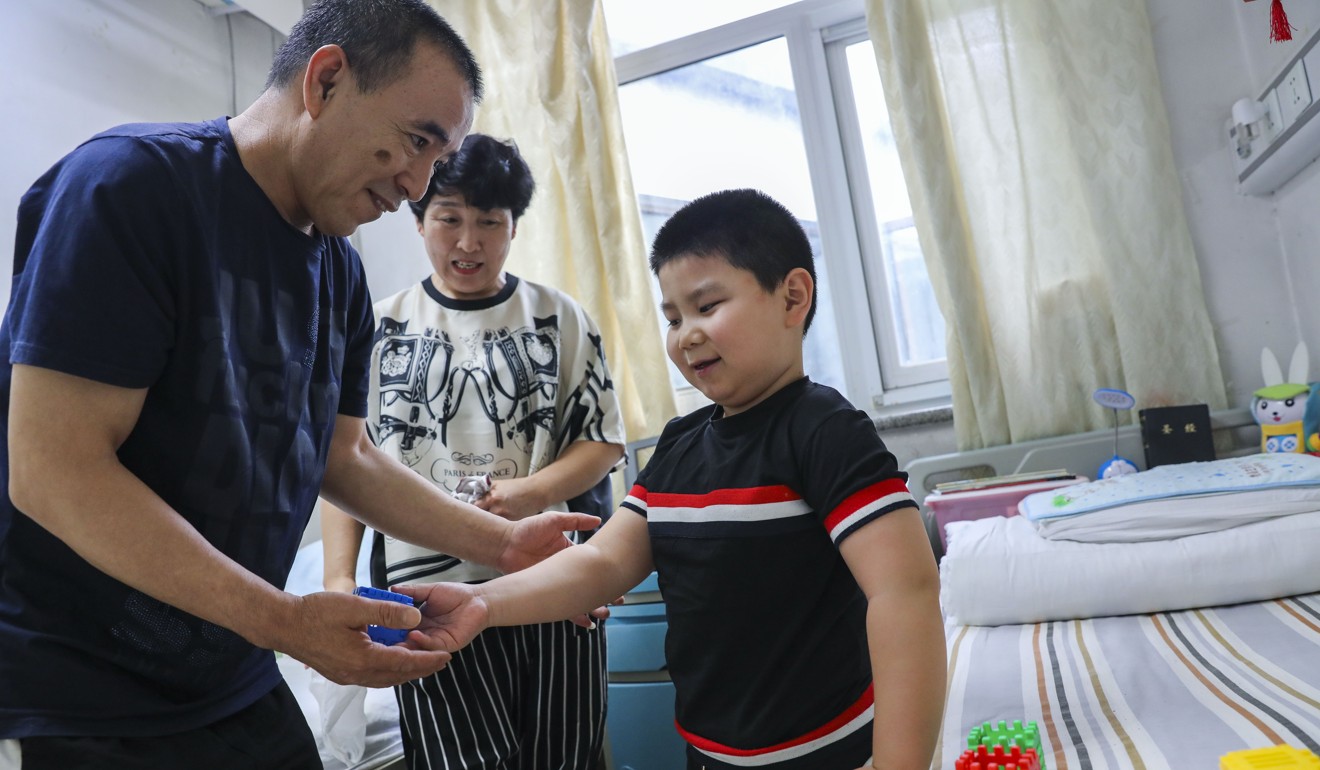
Yang Cuiping has raised 100,000 yuan through her crowdfunding drives so far, but says going to the public through online forums for financial help is a last resort for them.
“We have known many families in Beijing like us who have to resort to such forums. China’s medical system is backward. Without money and continuous treatment, my grandson’s condition will become unstable. We don’t want to delay his treatment at this critical period. He has been through too much trauma. We hope that he can go back to school soon.”

